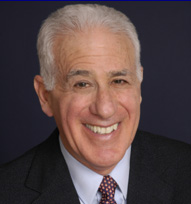

How To Select The Right Mediator
In a nutshell, people prefer mediators who are dogged, understand the dynamics of the dispute, can cut to its heart and figure out what levers to pull to get a settlement. To find such a person, you should consider a mediator’s personal attributes, experience and style.
Personality and People Skills
Effective mediators relate well to people. They are good listeners, empathetic, positive, friendly, likable and sincere. They display optimism, creativity, patience, persistence, and energy. They genuinely care about helping people.
Litigating adversaries often distrust each other, but they can settle cases if they trust the mediator. Effective mediators earn participants’ trust and establish rapport by being and being perceived as truly neutral, maintaining confidences and understanding parties’ positions, interests and objectives.
Mediation Experience
Most mediators have received training in mediation skills. Some have earned certifications. Neither by itself makes someone an effective mediator. Actual mediation experience – number and types of cases mediated, success rates and references – are much better indicators of a mediator’s ability. Conducting many mediations involving varying subjects and people enables a mediator to develop the instincts and perceptiveness needed to move a dispute toward resolution.
A key aspect of a mediator’s experience is his or her subject-matter and industry knowledge. Such knowledge is sometimes desirable, sometimes not, depending on the parties and the nature of the case. In cases involving technical subjects, such as patents, the mediator’s subject matter knowledge may be desirable. In addition, subject-matter and industry knowledge may help mediators assess the strengths and weaknesses of each side’s arguments and draw on his or her legal experience to explore solutions.
On the other hand, when a mediator does not have such knowledge and experience, counsel have an opportunity to educate and influence him or her.
A mediator without subject-matter knowledge may be more likely to see a problem with fresh eyes. But a mediator’s ignorance of the applicable law may undercut her or his persuasiveness.
Ultimately, counsel selecting a mediator must decide whether in a particular case, they would be more comfortable selecting a mediator with subject-matter or industry knowledge. They may decide that selecting a mediator with the patience and intelligence to understand their view of the case is more important.
Mediation Style
The most cited mediator styles are “facilitative” and “evaluative.”
The facilitative mediator assumes that his or her principal mission is to clarify and enhance communication between the parties in order to help them decide what to do. In facilitative mediation, the mediator asks questions, searches for interests behind the positions taken by parties and assists the parties in finding and analyzing options for resolution. The facilitative mediator does not make recommendations to the parties or predict the likely outcome if the case went to trial.
In contrast, an evaluative mediator assists the parties by pointing out the strengths and weaknesses of their case and predicting what a judge or jury would be likely to do. Based on their experience and expertise, they provide guidance as to the appropriate terms for settlement.
In practice, helping the parties reach an agreement generally requires both approaches. Experienced mediators often use facilitative skills early in the mediation and invoke evaluative skills when engaged in reality testing and assessing the strengths and weaknesses of a case.
Finally, a critical element of a mediator’s style is whether s/he follows up when a case does not settle right away. Many cases settle after the initial session ends, some much later, and a mediator who continues to engage may help the parties settle eventually.
Getting Information About Mediators
How does one find a mediator and get information about his or her personality, background, style, reputation, fees and success rates?
Asking attorneys and business people for recommendations is a good place to start. The Internet can lead you to the websites of mediators, provider organizations and Court mediator rosters, which have lists of mediators and information about their backgrounds. When you have several candidates in mind, contact them for more information. Besides asking about their background, style, etc., get a sense of their personality. Most important, ask them for references.
Selecting a Mediator Suggested By an Opponent
Sometimes the other side suggests a mediator he or she has used before. Some lawyers reject that person out-of-hand, fearing bias. But the suggestion is worth considering. If you don’t have another reason to reject the mediator, agreeing to someone the adversary trusts, respects and listens to may increase the chances of settlement. After all, if the opponent will need to move from his or her position to settle the case, who better to create that movement that a mediator the adversary trusts? If you are concerned about bias or some other aspect of the mediator’s relationship with the opponent, call the mediator and ask about that relationship.
The Mediator’s Fee
The mediator’s fee must be within your budget and be commensurate with the value of the case. Find out how a mediator charges – by the hour, day, half day or a flat fee – and what he or she charges for – preparation time, travel time, travel and lodging expenses, etc.
One Size Does Not Fit All
Fitting the mediator to the case and the parties is critical. A mediator who is the right choice for one case may not be the best choice for another case, even one involving similar issues. The right mediator will be one whose personality, background and style mesh with the attorneys and decision-makers. He or she should command respect and be able to speak effectively to each participant.
Conclusion
Selecting the right mediator involves thinking about what you want, gathering information about potential mediators and checking them out. Since the right mediator will be one with whom you feel rapport, trust your gut.